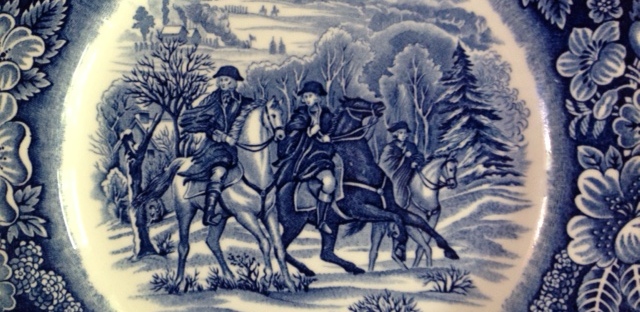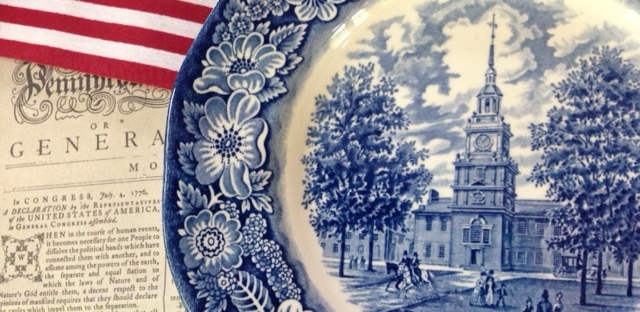As I’ve looked at history, I think I’ve sometimes viewed the characters as if they knew their actions’ outcomes. It was all fine and well for the Patriots to be so brave. They must have felt very sure of themselves. Of course they were going to win! How could anyone have wanted to give up?
But they didn’t know the end of their story. They were like I am in 2015, in the middle of the adventure and wondering what might happen next. Are we doing right? Is there any way we’ll win? Or will we be relegated to the failures of history? Is it going to be worth the cost?
And they had reason to wonder. By the winter of 1776, not even six months after the Declaration of Independence was signed, George Washington’s Patriots were underfed, shoeless, unpaid, and suffering sickness and defeats. Since they didn’t know what was coming, 2,000 of them left when their enlistment expired. [1] Even before that show of hopelessness, Washington wrote to his cousin,
“In confidence, I tell you that I never was in such an unhappy, divided state since I was born.” [2]
Yes, these were days to “try men’s souls” as Thomas Paine put it. [3] The realities remind us that the War for Independence wasn’t glamorous. The men who fought in it weren’t given messages from heaven saying that they were going to be famous someday. They struggled with decisions, made mistakes and had to face them, and needed to confide their feelings to friends.
Somehow this knowledge comforts me as I live within my own life’s tale. While it’s true that as a Christian I know I can look forward to a “joyfully ever-after”, I don’t know when that’s coming or what lies between now and then. Somedays I think, I don’t know what tomorrow holds; how can I possibly make life-altering decisions?
Let’s face it. Life gets complicated and hard sometimes. That sure wouldn’t be news to George Washington! And yet, he and a (comparative) handful of others pressed on. For some reason, God chose to suddenly bless their efforts – with their crossing the Delaware and surprise attack on Trenton on December 25, 1776, for example – and here I am over two-hundred years later with gratitude for that.
Here’s another thought I’ve pondered: If you’re going to be a soldier who sticks with it, you’d hope your cause would be worth it, wouldn’t you? For me, that’s where listening to God comes in. As the “Author of life” (Acts 3:15, ESV), Jesus knows the end of the story. I think that’s a good reason to rely “on the protection of divine Providence” like the signers of the Declaration of Independence said they did. [4]
So I press on – praying, reading, watching, listening, working, waiting for God’s directing hand. What might happen if we’re not “sunshine patriots” or “summer soldiers” [5] who give up when life gets hard? Maybe we won’t have history-shaking victories. But at least generations to come could look back and say, “They didn’t give up. They persevered in something eternally worthwhile. They set an example for us. Let’s live up to it.”
1 David McCullough, 1776: The Illustrated Edition, pg. 197.
2 David McCullough, 1776: The Illustrated Edition, pg. 191.
3 Thomas Paine, “The American Crisis” http://www.ushistory.org/paine/crisis/c-01.htm (accessed 9 July 2015).
4 “The Declaration of Independence” http://www.archives.gov/exhibits/charters/declaration_transcript.html (accessed 9 July 2015).
5 Thomas Paine, “The American Crisis” http://www.ushistory.org/paine/crisis/c-01.htm (accessed 9 July 2015).

